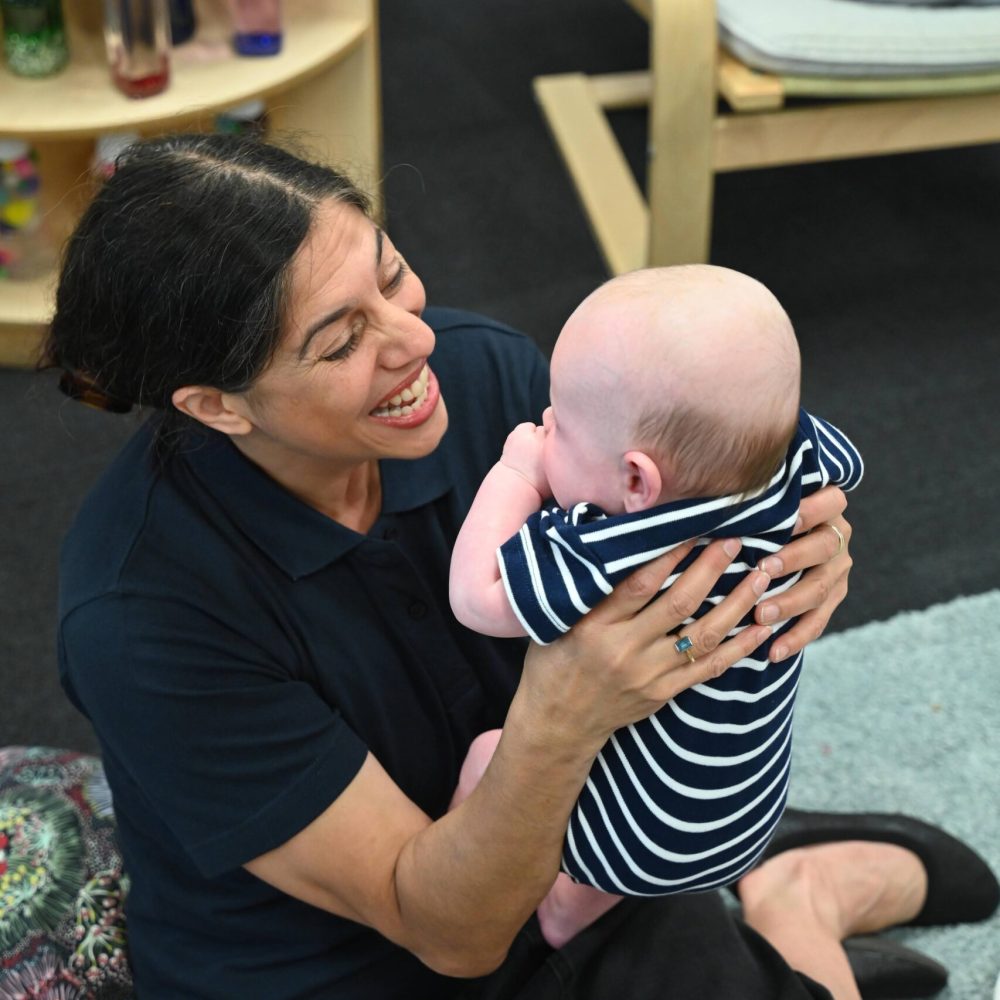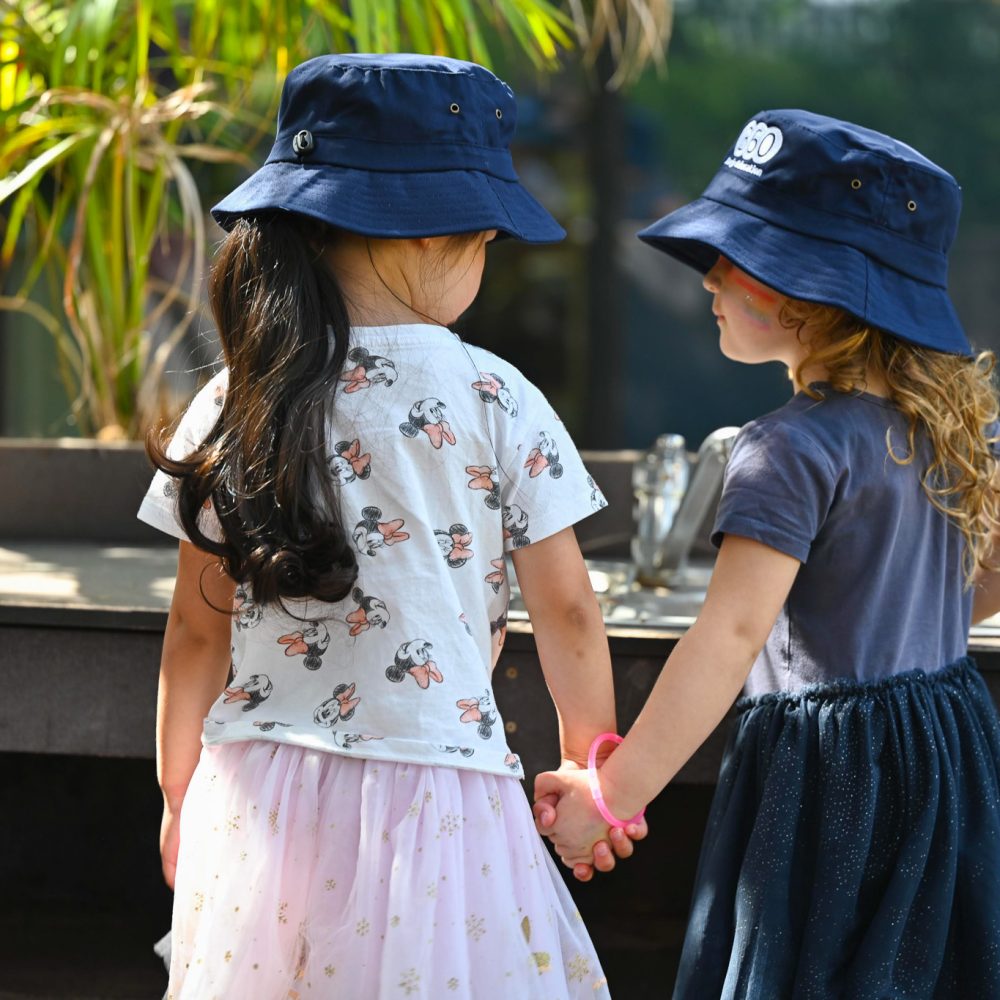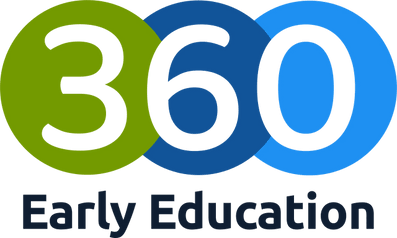When we respond sensitively, accurately and intuitively to a babies signals, we form attachments. Attachments are a key indicator of lasting wellbeing and security.
In the early days of enrolment, your child will show a natural attachment with one of their carers – though it’s likely they’ll think the whole team are pretty awesome. Having a primary caregiver builds the strongest and most secure attachment an educator can provide. You’ll get to know each of the educators, they’ll keep you up to date with your child’s learning journey on a day to day basis, but your primary caregiver will be your anchor at the service. They’re your partners in education, and will work closely with you, getting to know your child’s routines, preferences, learning styles and dispositions.
Infants and toddlers will have these primary caregiving connections nurtured as they grow. Our service is able to provide you and your child with a trusted primary caregiver through first steps, trips to the zoo, scraped knees, dinosaur obsessions, new baby siblings and onto their preschool years.
To sustain our primary carer model from birth to three, our class cohorts are very carefully arranged and consistent enrolment patterns are essential. Transitions are kept to an absolute bare minimum; and we hope you’ll never want to leave!

Social & Emotional Learning
At 360 Early Education, we understand the importance of relationships, and place them at to core of everything we do. The research is conclusive that social and emotional skills, including the ability to manage emotions and get along with others, play an integral role in academic success in future life; more so than any other early childhood skill.
From birth, nurturing and secure attachments with caregiving adults enable children to learn. The role that warm and supportive relationships play in developing a child’s brain architecture can’t be understated. We work with your child from a young age, teaching self awareness, self-management, social Awareness, relationship skills and responsible decision making.
When children ask us questions, we tune into them, we engage, and we connect. When babies babble, we respond. When a child’s eyes widen with excitement as they tell us a great story about their weekend, we recognise that their words have value, and accept their invitation to share their joy. These interactions are the building blocks of brain architecture; the child’s emotions, thoughts and experiences are affirmed, and the child develops the confidence to keep learning.
From attached and attuned caregivers a child’s neurons will form and strengthen connections growing brain architecture at a rapid rate. We work with children from a young age to grow and strengthen these connections to develop both ‘Executive Function’ and ‘Self-Regulation’ commonly known as Social and Emotional Skills.
From the time your child starts in a 360 early education service they will be guided through heightened emotion, in partnership with an attuned educator, skilled in emotional coaching.
Each child at 360 is taught to understand their inner world of feelings and emotions and how to label what they are feeling. They are taught about how their brains and bodies work under stress and how to manage frustration, disappointment, fear and anger by employing mindful attention, and meditation through intentional, deep breathing.
Our programs are research driven, and recognise the importance of physical exercise, sensory calm, and connections with the natural world. You’ll find children engaged in yoga, belly breathing exercises, holding the hands of an educator as they are coached through a really tricky emotion, and, in our 3–5-year-old classrooms, working with the MindUP! Curriculum.
The MindUp! Program is a positive psychology curriculum that teaches children about their brain! Based in the field of neuroscience, MindUp! Uses research into neuroplasticity and emotional regulation to teach mindfulness, resilience, focus and balance.
Have you ever heard a 3-year-old discuss their prefrontal cortex? You sure will as your children spend two years learning all about their brains. Learning about the brain and its functions is an important first step in allowing children to gain an understanding of how and why we react differently to different situations. This equips children with the ability to monitor and regulate their emotions whilst empowering them to focus and take control of their learning.


